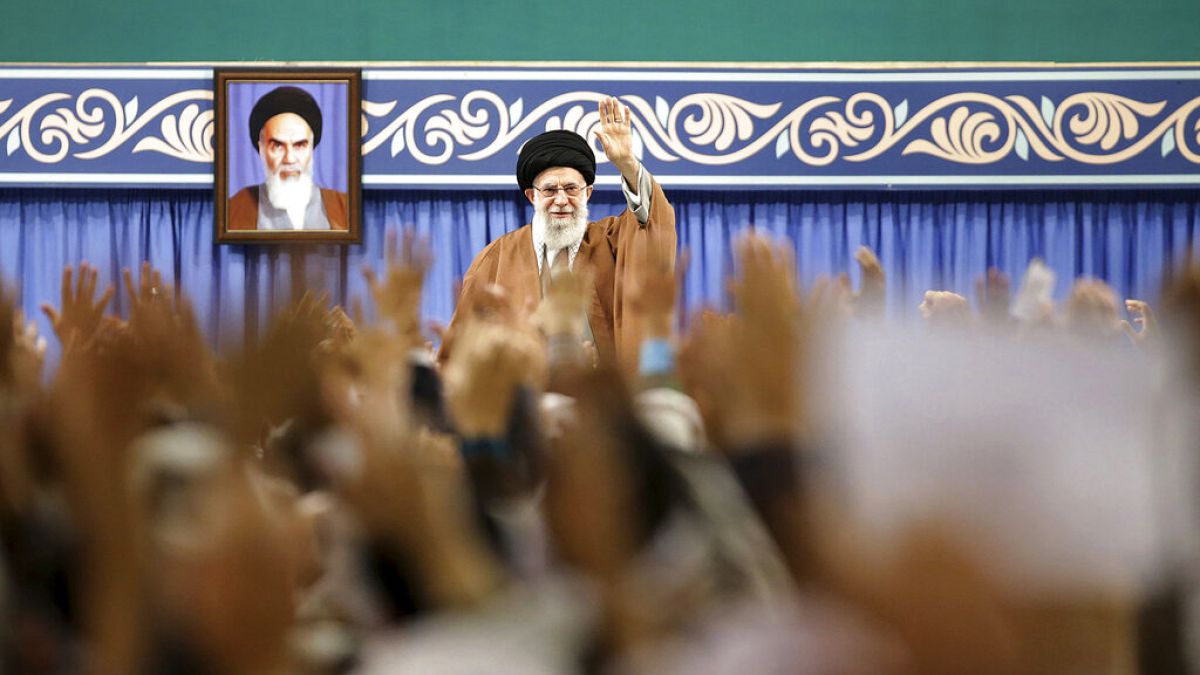After the Israeli strikes what will Iran do next?

The Iranian government said on Saturday morning that the damage from the airstrikes was 'limited' and that the 'situation is normal.'
After Israel launched a wave of airstrikes against Iran, domestic media and sources close to the Islamic Revolutionary Guard Corps (IRGC) are attempting to downplay it, saying it was a failure.
While Israel reports that at least 20 military sites were effectively targeted in a three-phase operation early on Saturday, Iranian semi-official sources have dismissed claims of 140 Israeli fighter jets being involved as “exaggerated Israeli propaganda.” They are also emphasising to Iranians that Israeli leaders directed the attack from bunkers, purportedly out of fear of potential Iranian retaliation.
Fatemeh Mohajerani, a spokeswoman for the Iranian government, limited her statement on the damage from the airstrikes, saying it was “limited” and that the “situation is normal.”
The regime is also trying to stop photo and video of the damage from the airstrikes reaching the outside world.
The Organised Crime Investigation Centre, a subdivision of the IRGC, issued a statement warning Iranian not to cooperate with foreign media, or else face a ten year prison sentence:
"Citizens are informed that any sending of images or news to opposition media or those affiliated with the Zionist regime is considered a crime."
But despite this threat, videos and images of the attack on Israel were shared on social media.
Israel has obeyed its most important ally, the US
As Washington had desired, Israeli leader Benjamin Netanyahu appears to have opted for a more limited series of retaliatory strikes on conventional military targets.
Nuclear facilities and oil installations had been seen as possible targets for Israel’s response to Iran’s Oct. 1 attack, before U.S. President Joe Biden's administration won assurances from Israel in mid-October that it would not hit such targets, which would be a more severe escalation.
The United States has now warned against further retaliation, indicating that the overnight strikes should end the direct exchange of fire between Israel and Iran.
In reality, Israel’s focus on specific military targets, whilst not ideal for the Islamic Republic, was far from the worst-case scenario. A more extensive attack on critical infrastructure—such as oil, electricity, or nuclear facilities—could have driven Iran into even deeper crisis amid the current economic and political instability.
US media had earlier noted that if Israel’s response remained limited, Iran would likely refrain from retaliating. The New York Times also reported that Iranian officials have clarified they would respond if Israel’s attacks caused extensive damage and high casualties; however, if Israel kept its strikes to a few military bases and storage facilities for missiles and drones, Iran might opt not to take any counter-action.
How is Iran reacting to the strikes?
Iran finds itself in a precarious position, particularly as its regional proxy forces, notably Hezbollah in Lebanon, are significantly weakened. The regime is aware, at least behind the scenes, that it lacks the military capability to match Israel, which receive billions of euros' worth of US military aid each year.
While it is improbable that Iran would officially renounce its right to retaliate, an immediate response does not appear to align with its strategic interests.
In the short term, Iranian media and state television will likely emphasise a narrative of “victory” while downplaying or even dismissing some aspects of Israel's retaliatory strike as “fake.” The Iranian regime will likely conceal any damage to ballistic missile production facilities or drone manufacturing plants, capitalising on the limited and perhaps coordinated nature of Israel’s response to control the situation.
Of course, concealing the truth is nothing new in Iranian politics, with many examples like the downing of the Ukrainian airplane or Israel's response to Iran's first attack on Israeli soil in April 2024. Regarding Israel’s attack on the Isfahan facility, only a few days ago and for the first time, a senior IRGC commander finally acknowledged the occurrence of this strike.
Will the violence now escalate or will a crisis be averted?
While Iran is expected to maintain the rhetoric of a potential response, it will likely navigate a delicate balance between escalating and de-escalating tensions.
Moreover, it is essential to remember that the upcoming U.S. election, less than ten days away, will significantly influence the future policies of both Iran and Israel, and it seems unlikely that the White House would allow tensions to spiral in the remaining days—a prospect that could prompt Iran to shelve the issue for now—a restraint possibly hinted at by Iran’s implicit assurance to stabilise Lebanon and Gaza, which could encourage Tehran to keep the matter quiet.
However, the influence of those who benefit from sanctions and the hardliners within Iran’s ruling circles, who see full-scale conflict as their only path to political survival, should not be underestimated either.

No comments:
Post a Comment